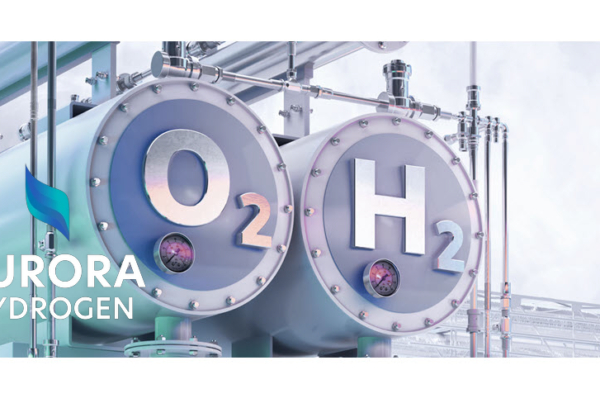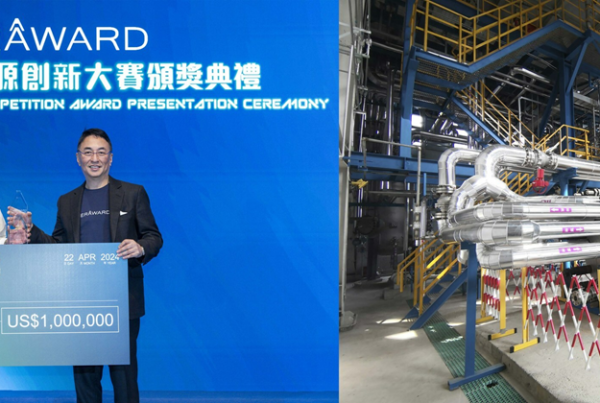
A new total cost of ownership (TCO) study from the National Renewable Energy Laboratory (NREL) finds that battery electric and fuel cell electric commercial trucks could be economically competitive with conventional diesel trucks by 2025 in some operating scenarios.
For commercial medium- and heavy-duty electric vehicles, the adoption of a new technology relies heavily on its cost relative to alternatives. A new report from the National Renewable Energy Laboratory (NREL) seeks to pinpoint the conditions for when battery electric or fuel cell electric commercial trucks offer economic advantages over traditional diesel-fueled trucks by examining a key metric—the total cost of ownership (TCO).
For years, medium- and heavy-duty trucks have presented unique challenges to decarbonization of the transportation sector. For one, these vehicles must withstand significantly more annual use than a personal car. On average, commercial Class 8 tractors can expect to travel 120,000 miles each year. In addition, commercial vehicles are extremely heavy, ranging from 14,000-pound Class 4 delivery vehicles to Class 8 tractors hauling up to 80,000 pounds. Altogether, medium- and heavy-duty trucks account for 26% of national fuel use—despite making up just 4% of the total vehicle population—and greenhouse gas emissions from medium- and heavy-duty trucks continue to increase at a rate faster than emissions from light-duty vehicles in the United States. However, new electric powertrain technologies offer a pathway to decarbonization for this critical vehicle segment.
Spatial and Temporal Analysis of the TCO for Class 8 Tractors and Class 4 Parcel Delivery Trucks compares six truck powertrain technologies to quantify their TCO and identify operating scenarios where each technology may have an economic advantage. The powertrains analyzed include conventional diesel, diesel hybrid electric, plug-in hybrid electric, compressed natural gas, fuel cell electric, and battery all-electric.
“Our objective was to provide a quantitative comparison of various powertrains to highlight the potential lifetime implications of each technology,” said Chad Hunter, lead author of the report and former NREL researcher. “This analysis found that battery-electric and hydrogen-electric powertrains could have a competitive TCO as early as 2025, even for Class 8 vehicles, which are notoriously difficult to decarbonize.”
This TCO study quantifies indirect costs—for example, the cost of lost cargo capacity due to a heavier powertrain or the cost of dwell time spent refueling or recharging—along with the direct costs of buying, maintaining, fueling or charging, and driving a vehicle. Understanding these indirect costs is critical to understanding the full economic implications of a shift toward zero-emission transportation.
Introducing T3CO: An Integrated, Flexible TCO Modeling Approach
The research leveraged NREL’s Transportation Technology Total Cost of Ownership (T3CO) modeling framework, which enables levelized assessments of the full life-cycle costs of advanced commercial vehicles. T3CO combines the power of two existing NREL tools, the Future Automotive Systems Technology Simulator (FASTSim) and the Scenario Evaluation and Regionalization Analysis (SERA) model, to account for the varied performance and economic requirements for medium- and heavy-duty vehicles.
“Total cost of ownership is one of the most critical metrics for mass adoption of electrified commercial vehicles,” said Alex Schroeder, manager of NREL’s Advanced Vehicles and Charging Infrastructure group. “We recognize that commercial vehicle technologies and operations will continue to evolve and purposely sought to make T3CO flexible, extensible, integrated, and open. A lot of stakeholder input informed its development, and we’re excited to see it evolve and grow through continued partnerships.”
T3CO features an end-to-end, integrated approach for evaluating all costs and enabling consistent comparisons across technologies and vocations.
A Future for Decarbonization of Heavy-Duty Vehicles
Using the new T3CO model, NREL researchers assessed all direct and indirect costs for each powertrain technology for three different truck vocations: Class 8 long-haul (500–750-mile range), Class 8 short-haul (300-mile range), and Class 4 parcel delivery (120-mile range). To further the analysis, researchers compared the powertrains for multiple timeframes to illustrate how battery and hydrogen fuel price reductions are key to accelerating medium- and heavy-duty vehicle electrification.
“Our research indicates that refueling and recharging cost management must be a key focus for future research and development,” Hunter said. “Electricity and hydrogen fuel prices are central factors to the TCO of the battery and fuel cell electric trucks evaluated in this report.”
At NREL, the Advanced Research on Integrated Energy Systems (ARIES) research platform will support R&D to achieve these technology advancements and cost reductions.
“One of the important outcomes from this study is that it helps us to hone future research priorities,” Schroeder said. “The ARIES platform being established at NREL is expressly designed to provide cost-effective megawatt-scale charging and high-throughput hydrogen fueling.”
This comprehensive comparison across technologies represents significant coordination across the U.S. Department of Energy Office of Energy Efficiency and Renewable Energy’s Hydrogen and Fuel Cell Technologies Office and Vehicle Technologies Office and leverages TCO studies developed by other DOE national laboratories.
Learn more about NREL’s hydrogen and transportation and mobility research.
Spatial and Temporal Analysis of the Total Cost of Ownership for Class 8 Tractors and Class 4 Parcel Delivery Trucks compares six leading powertrain technologies to quantify the TCO of different truck options and identify operating scenarios where each technology may have an economic advantage. The powertrains analyzed include conventional diesel, diesel hybrid electric, plug-in hybrid electric, compressed natural gas, fuel cell electric, and battery all-electric.
This comprehensive comparison across technologies represents significant coordination across the U.S. Department of Energy Office of Energy Efficiency and Renewable Energy’s Hydrogen and Fuel Cell Technologies Office and Vehicle Technologies Office and leverages TCO studies developed by other DOE national labs.
Read the most up to date Fuel Cell and Hydrogen Industry news at FuelCellsWorks




